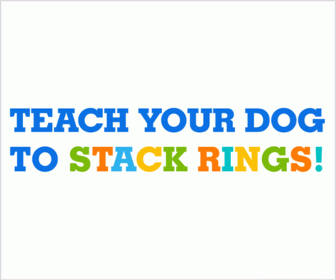Ever wondered what can French bulldogs not eat? Well, sit tight because you’re about to dive into a gastronomic no-go zone for your squishy-faced pal. When it comes to our French Bulldogs, their diets can be as quirky as their adorable personalities. In this article, we’re breaking down the do’s and don’ts of Frenchie feeding habits, ensuring that your pup isn’t just eating well but thriving.
Now, you might think that your culinary tastes should be a road map for your dog’s diet, but hold that thought! French Bulldogs have a different playbook when it comes to the food bowl. From the downright dangerous to the surprisingly toxic, some foods can cause more drama than a French Bulldog trying to fit into a cat door. So, let’s make sure your doggo stays as healthy and chipper as they look by steering clear of the wrong snacks!
- Avoid feeding French Bulldogs grapes, raisins, chocolate, onions, garlic, and foods containing xylitol.
- Keep avocado, including its pit and leaves, away from your Frenchie due to its toxic substance, persin.
- Dairy products can cause digestive upset since many Frenchies are lactose intolerant.
- Do not give cooked bones or fat trimmings to avoid risks of pancreatitis and digestive blockages.
- Always check labels for hidden ingredients harmful to French Bulldogs and maintain a safe, Frenchie-friendly diet.
Table of Contents
- 1 What Can French Bulldogs Not Eat – Foods to Avoid
- 2 Toxic Foods for Your French Bulldog
- 3 Safe Dietary Practices for French Bulldogs
- 4 Frequently Asked Questions
- 4.1 What should I give my Frenchie for allergies?
- 4.2 What is the most common food allergy in French bulldogs?
- 4.3 What food is good for French bulldogs with allergies?
- 4.4 What foods are bad for French Bulldogs?
- 4.5 What helps French bulldogs with allergies?
- 4.6 What are Frenchies allergic to?
- 4.7 What is the best treatment for bulldogs with allergies?
- 4.8 What are French bulldogs most allergic too?
- 5 Final Thoughts
- 6 Recommended Authors For Further Reading
What Can French Bulldogs Not Eat – Foods to Avoid
So, you’ve already got the scoop on the fact that Frenchies have their dining do’s and don’ts. But let’s zero in on exactly what can French bulldogs not eat. It’s a culinary minefield out there for your bat-eared buddy, and here’s the lowdown on the foods to firmly place on your no-feed list.
Grapes and Raisins: The Sneaky Danger
Here’s a surprise starter: grapes and raisins. These seemingly harmless snacks are like kryptonite to French Bulldogs. Just a small amount can cause serious kidney issues. Think of grapes and raisins as the invisible villains of the Frenchie snack world.
Chocolate: Not a Treat
While chocolate is a heavenly treat for humans, it’s a big no-no for our canine friends. Chocolate contains theobromine, which French Bulldogs (and all dogs, really) cannot metabolize. Even a little nibble can lead to serious health issues, including heart problems and, in severe cases, death. So, keep those chocolate bars out of licking distance!
Onions and Garlic: Hidden Hazards
Adding a bit of onion or garlic might spice up your meals, but for French Bulldogs, these are a definite no. Both onions and garlic can break down a dog’s red blood cells, leading to anemia. This includes all forms, whether powdered, raw, cooked, or dehydrated.
Xylitol: The Sweet Menace
Xylitol, a common sweetener found in many sugar-free products like gum and candy, is another big villain in the Frenchie food saga. It can cause a rapid drop in blood sugar and even liver failure. Before you think of sharing a piece of that sugar-free gum, think twice or maybe even thrice!
Avocado: The Fatty Foe
Avocado might be the heart-healthy fat champion for humans, but for French Bulldogs, it’s not so fantastic. All parts of the avocado, from the pit to the leaves and even the fruit itself, contain persin, a fungicidal toxin that can cause health problems in French Bulldogs.
Dairy: A Creamy Conundrum
Lastly, let’s talk dairy. A little cheese might seem like a good idea for a training treat, but large amounts can be problematic. Many French Bulldogs are lactose intolerant, which means that consuming dairy can lead to digestive upset. It’s best to say no to the cheese and yes to safer alternatives.
Navigating what to feed your Frenchie might seem like dodging dietary bullets, but once you know what’s safe and what’s not, it’s pretty straightforward. Keep these foods out of their bowl and off the floor, and your Frenchie’s diet will be as fabulous as they are!
Toxic Foods for Your French Bulldog
Ever wondered “what can french bulldogs not eat?” Well, strap in, because we’re diving into the no-go zone of Frenchie foods, and let me tell you, it’s more scandalous than a daytime soap opera. Keeping your four-legged friend safe isn’t just about the occasional “no” when they eye your dinner—it’s about knowing the downright dangerous eats that can harm them.
First up on the toxic treats list: Chocolate. Yes, that heavenly delight that makes our human hearts flutter is an absolute villain for our Frenchies. Chocolate contains theobromine and caffeine, two substances that French Bulldogs process more slowly than us. Even a tiny amount can lead to serious health problems like heart issues, seizures, and, in severe cases, even death. So, next time your Frenchie gives you puppy eyes when you’re eating that chocolate bar, just remember it’s a heartbreaker in disguise for them.
Moving on to something a bit less sweet and a lot more surprising: Avocados. They might be the toast of health gurus everywhere, but avocados carry a hidden danger for your furry friend. The culprit here is persin, a toxin that can cause vomiting and diarrhea in French Bulldogs. And it’s not just the fruit itself—beware of avocado leaves, pit, and even the bark if you’re one of those lucky enough to have an avocado tree lounging around in your backyard.
Now, let’s talk about bones and fat trimmings, staples of the no-no diet for any discerning Frenchie owner. Cooked bones can splinter and cause obstruction or lacerations in the digestive system. And while fat trimmings might seem like a tasty treat, they can lead to pancreatitis, a condition that is as fun as getting a root canal without the anesthetic.
Onto fruits, and yes, we’re looking at you, Grapes and Raisins. Innocuous as they seem, grapes and their dried counterparts are like kryptonite to French Bulldogs. Even small amounts can lead to kidney failure. So, keep that vineyard fantasy strictly human-only.
Lastly, let’s not forget about Xylitol. This sweetener is found in many products, including gum, candy, and some peanut butters. It’s a sneaky one because it can cause insulin release in most species, which leads to liver failure in dogs. Always double-check the label when you think of sharing some snacks with your Frenchie.
So there you have it, a rundown of the dietary dangers lurking in your pantry and fridge. Remember, keeping your French Bulldog healthy and safe from these toxic foods will ensure they remain the happy, loving companion you cherish. And when in doubt, always think, “What can french bulldogs not eat?” It could save your pup’s life.
Safe Dietary Practices for French Bulldogs

So, you’ve mastered the art of avoiding the no-nos of “what can french bulldogs not eat”, but what about the yes-yes foods? Fear not, fellow Frenchie fanatics, because navigating the safe havens of French Bulldog diets can be as joyful as finding extra fries at the bottom of your take-out bag.
First off, let’s chat about protein. French Bulldogs need their protein just like any swole buddy at the gym. However, it’s not about tossing them a raw steak (we’re looking at you, Rocky Balboa fans). Cooked lean meats like chicken, turkey, and even some fish can give your pup the muscle-building blocks without the risks that raw meats carry. Just make sure to cook everything plain—no fancy spices or onion and garlic drama, please!
Vegetables can be a great snack option, but it’s like navigating a minefield. Carrots? A big yes—they can munch on them raw for a crunchy treat that’s also good for their teeth. Green beans? Load them up—full of vitamins and also low in calories. Just steer clear of the notorious no’s like onions and garlic that sneak into a lot of veggie dishes.
Now, onto the carbs. Yes, even dogs need their share of carbohydrates. Plain, cooked pumpkin and sweet potatoes are loaded with fiber and vitamins that can help keep your Frenchie’s digestive system running smoother than a high-school gossip mill. Plus, they’re a great way to keep that bulldog figure in check.
When it comes to fruits, think of them as nature’s candy. A small slice of apple or some blueberries can make for a delightful treat, but remember, moderation is key—just like binge-watching your favorite series; you don’t want too much of a good thing.
Lastly, hydration is the unsung hero of a healthy diet. Fresh, clean water should be available at all times, because staying hydrated is as crucial for your pup as it is for that one friend who insists on running marathons.
Implementing these safe dietary practices doesn’t just answer the question of “what can french bulldogs not eat?” but also highlights what they can eat to stay healthy, happy, and as charming as ever. Remember, every Frenchie is different, so keeping in tune with their specific needs and consulting with your vet can turn you into the best pet parent on the block!
- Avoid grapes, raisins, chocolate, onions, garlic, xylitol, avocados, and dairy in a French Bulldog’s diet.
- Even small amounts of these foods can cause serious health issues like kidney failure, heart problems, anemia, and liver failure.
- Many French Bulldogs are lactose intolerant; dairy can cause digestive upset.
- Awareness of these toxic foods is essential for maintaining the health and well-being of your French Bulldog.
Frequently Asked Questions
What should I give my Frenchie for allergies?
You should consult your vet to identify the specific allergies, but generally, hypoallergenic diets and supplements like omega fatty acids might help.
What is the most common food allergy in French bulldogs?
The most common food allergies in French bulldogs are often related to beef, chicken, dairy, and wheat.
What food is good for French bulldogs with allergies?
Foods that are good for French bulldogs with allergies include novel protein sources such as kangaroo or duck, and limited ingredient diets to minimize the risk of allergic reactions.
What foods are bad for French Bulldogs?
Foods that are bad for French bulldogs, especially those with allergies, include common allergens like beef, chicken, dairy products, wheat, and corn.
What helps French bulldogs with allergies?
Managing allergies in French bulldogs can involve feeding them hypoallergenic diets, regular bathing with medicated shampoos, and possibly allergy medications prescribed by a vet.
What are Frenchies allergic to?
Frenchies can be allergic to a variety of substances, including certain foods, environmental allergens like pollen and dust mites, and fleas.
What is the best treatment for bulldogs with allergies?
The best treatment for bulldogs with allergies typically involves a combination of dietary management, environmental control measures, and medication prescribed by a veterinarian.
What are French bulldogs most allergic too?
French bulldogs are most commonly allergic to environmental allergens like pollen, dust mites, and molds, as well as certain food ingredients such as beef, dairy, and wheat.
Final Thoughts

Navigating the culinary do’s and don’ts for your French Bulldog can seem more complex than trying to understand the plot twists in a teen drama. But fear not! Keeping your Frenchie healthy is all about knowing the essentials of “what can french bulldogs not eat” and ensuring they stick to a diet that’s as balanced as your last yoga session.
Remember, every French Bulldog is like your favorite character in a novel—unique and with their own quirks and preferences. Some might be fine dining on gourmet doggy meals, while others are more the ‘easy-going snack type.’ The key is to tailor their diet to their individual needs and to always consult with your vet because, let’s face it, they’re the real-life equivalent of those wise, advice-giving mentors in every good story.
As we wrap up our culinary journey through the world of what can French bulldogs not eat, think of it less like a list of restrictions and more like a guide to unlocking the vibrant health and happiness of your pup. It’s about making sure that your Frenchie’s diet helps them to thrive so they can be the sidekick in your life’s adventures—or maybe you’re the sidekick in theirs?
So, go forth, armed with knowledge and a sprinkle of humor, to make your French Bulldog’s mealtime as enjoyable as those lazy Sunday mornings under the covers. Here’s to happy, healthy Frenchies and the humans who love them—may your days be filled with shared snacks (the safe kind!) and zero trips to the emergency vet!
Recommended Authors For Further Reading
- Katherine Houpt – Houpt is a renowned veterinarian and animal behaviorist known for her extensive research and publications on animal behavior, including dietary habits and restrictions of domestic animals.
- Ian Dunbar – Dunbar, a veterinarian, animal behaviorist, and dog trainer, has written numerous books and articles on dog behavior and training, including aspects of proper canine nutrition and health.
- Karen Becker – Dr. Becker is a proactive and integrative wellness veterinarian who has extensively covered topics related to pet health, including detailed discussions on what dogs should and should not eat to maintain optimal health.
- Monica Segal – Segal is a certified animal health nutritionist who has authored several books on feeding pets, focusing on creating balanced diets that exclude harmful foods for specific dog breeds, including French Bulldogs.
- Jean Dodds – Dodds is a veterinary hematologist and immunologist known for her work on thyroid disease in dogs and issues related to pet food sensitivities and allergies, providing critical insights into safe dietary practices for pets.
